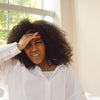Do you know about hangxiety?

What is Hangxiety (Hangover Anxiety)?
While drinking alcohol might have physical consequences, it can also have psychological and emotional consequences. Hangxiety, also known as hangover anxiety, is a sort of anxiety that develops after a large amount of alcohol has been consumed. Although anxiety is the least commonly reported symptom of a hangover, 22.6 percent of respondents say they have hangxiety.
Why does hangxiety happen?
Alcohol causes euphoria by disrupting neurotransmitters such as dopamine, serotonin, and endorphins. However, as these substances fade, you may experience worry and depression. Alcohol also activates the gamma-aminobutyric acid (GABA) neurotransmitter, which slows down your brain and is increased by many anxiety treatments. When you drink a lot of alcohol, your brain begins to block the glutamate neurotransmitter, which has been associated with anxiety, which might feel wonderful until your brain's chemicals are rebalanced. You might go from euphoric to depressed when it starts blocking GABA and releasing glutamate.
In addition, because alcoholic beverages contain a lot of sugar, your blood sugar will certainly drop after you stop drinking. Dizziness, confusion, numbness, shakiness, and, finally, nervousness are all symptoms of low blood sugar. You will become dehydrated if you consume alcohol. Dehydration can cause nausea, weariness, lightheadedness, and weakness, which can add to anxiety over health concerns.
Apart from these, You will become dehydrated if you consume alcohol. Dehydration can cause nausea, weariness, lightheadedness, and weakness, which can add to anxiety over health concerns.
Besides, by being hyperactive, your body is battling the sleepy effects of alcohol. This might cause anxiety symptoms such as trembling and sensitivity to light and sound. It can also keep you awake at night.
Additionally, alcohol can cause heart palpitations by speeding up your heart rate. For many people, heart palpitations are both a symptom and a source of anxiety.
Last but not the least, alcohol can impair your ability to concentrate, cause disorientation, and impair your memory. Paranoia and regret might be a source of distress for you if you have problems recalling events, conversations, and acts when under the influence.
Symptoms of Hangover Anxiety
The symptoms of hangover anxiety are similar to those of anxiety in general. The crucial distinction is that, although generalized anxiety can be triggered by everyday events, hangover anxiety is caused by alcohol consumption.
After a brief look at the causes and symptoms of hangover anxiety, have you experienced it too? We'll tell you more about how to get rid of hangover anxiety here















